pow camp
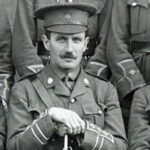
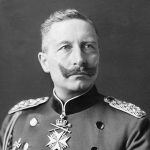 World War I was a different era, even in the way war was conducted. Oh, war is still war, and there is wounding, bombing, killing, and capturing. Nevertheless, with one leader, Kaiser Wilhelm II, there was also compassion. After being captured and placed in a POW camp, a British officer, Captain Robert Campbell found out that his mother was dying. He couldn’t bear the thought of not seeing his mother before she passed away, and in his grief, he took a chance. He appealed to Kaiser Wilhelm II, asking to be allowed to go home to visit his mother before she died. Amazingly, Kaiser Wilhelm II granted his request, on the condition that he return to the POW camp after the visit.
World War I was a different era, even in the way war was conducted. Oh, war is still war, and there is wounding, bombing, killing, and capturing. Nevertheless, with one leader, Kaiser Wilhelm II, there was also compassion. After being captured and placed in a POW camp, a British officer, Captain Robert Campbell found out that his mother was dying. He couldn’t bear the thought of not seeing his mother before she passed away, and in his grief, he took a chance. He appealed to Kaiser Wilhelm II, asking to be allowed to go home to visit his mother before she died. Amazingly, Kaiser Wilhelm II granted his request, on the condition that he return to the POW camp after the visit.
When you think about it, once he was safely home with his mother, Captain Campbell could have simply stayed. Seriously, what could the Kaiser have done about it. Nevertheless, being an honorable man, Captain Campbell kept his promise to Kaiser Wilhelm II and returned from Kent to Germany after visiting his mother for a week. He stayed at the camp until the war ended in 1918. That was not the end of the story, however.
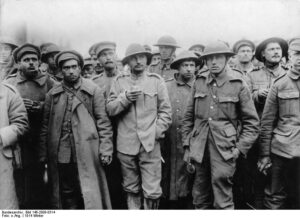
On August 24, 1914, then 29-year-old Captain Campbell, of the 1st Battalion East Surrey Regiment, was captured in northern France. He was sent to a prisoner-of-war (POW) camp in Magdeburg, north-east Germany. It was there that he received the heartbreaking news that his mother, Louise was dying of cancer. Captain Campbell traveled through the Netherlands and then by boat and train to Gravesend in Kent, where he spent a week with his mother before returning to Germany the same way. His mother died in February 1917.
With the kindness of the Kaiser, and a duty to honor his word, Captain Campbell, knowing that if he didn’t return, no one else would ever be given that same consideration, Captain Campbell returned to Germany. Strangely, there was no issues during his return. I suppose the Kaiser could have cleared the way previously, but it would be my guess that the Kaiser was just as shocked by the return as I am. Unfortunately, Britain wasn’t as considerate, because they blocked a similar request from German prisoner Peter Gastreich, who was being held at an internment camp on the Isle of Man. After that no other British prisoners of war were afforded compassionate leave.
As for Captain Campbell, while he felt duty-bound to return to captivity, he did not feel duty-bound to stay in 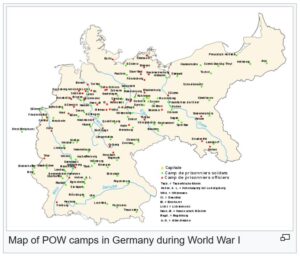
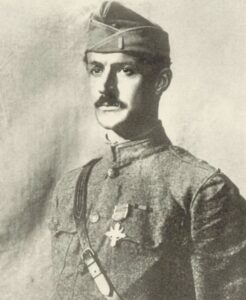 captivity. As soon as Captain Campbell returned to the camp, he set about trying to escape. He and a group of other prisoners spent nine months digging their way out of the camp before being captured on the Dutch border and sent back. He remained in the camp until 1918 and served in the military until 1925. Captain Campbell rejoined the military when World War II broke out in 1939 and served as the chief observer of the Royal Observer Corps on the Isle of Wight. He died in the Isle of Wight in July 1966, aged 81.
captivity. As soon as Captain Campbell returned to the camp, he set about trying to escape. He and a group of other prisoners spent nine months digging their way out of the camp before being captured on the Dutch border and sent back. He remained in the camp until 1918 and served in the military until 1925. Captain Campbell rejoined the military when World War II broke out in 1939 and served as the chief observer of the Royal Observer Corps on the Isle of Wight. He died in the Isle of Wight in July 1966, aged 81.
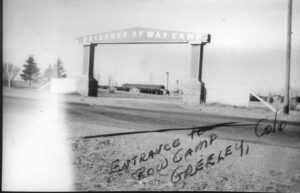 For some reason, when I think of Prisoner of War (POW) camps, I think of a place far away in a war zone, and there were some there, but as they filled up, the prisoners had to be moved to other areas. In addition to that, we needed men to work in the United States because our men were overseas fighting. The prisoners could be put to work in the fields to help grow needed foods for the country, as well as the troops. That idea was a bit foreign to me, especially when I heard that there was just such a camp that was practically in my backyard…even if I wasn’t born at the time. It’s just odd when history collides with your own neighborhood.
For some reason, when I think of Prisoner of War (POW) camps, I think of a place far away in a war zone, and there were some there, but as they filled up, the prisoners had to be moved to other areas. In addition to that, we needed men to work in the United States because our men were overseas fighting. The prisoners could be put to work in the fields to help grow needed foods for the country, as well as the troops. That idea was a bit foreign to me, especially when I heard that there was just such a camp that was practically in my backyard…even if I wasn’t born at the time. It’s just odd when history collides with your own neighborhood.
During World War II, the Greeley, Colorado POW camp had prisoners from Germany and Austria. The camp was built in 1943, and the first prisoners came in 1944. The camp was a self-contained town in itself. It had a fire station, hospital, theater, library, and classrooms. It also had electricity, water, and sewers. The prisoners who were held in the POW camps in the United States were treated well. This country wasn’t into the torture methods that the Axis of Evil nations were.
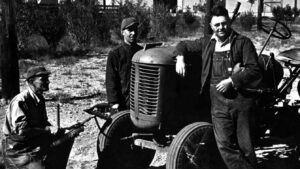
Many of the prisoners worked in the fields and paid money, for their labor, to take home with them. They were also given the chance to have fun. They had soccer teams. They dyed their t-shirts different colors using homemade dyes from vegetables. They had classes in English, German, and Mathematics. Some men were in the camp orchestra and others sang in choir. In many ways, the lives these men lived in the POW camps was better than the lives they lived at home…or at least during the war.
The Greeley POW Camp 202, was almost like a coveted assignment. It was the place the prisoners wanted to be sent. When new prisoners came to the camp, they would try to find men from their hometowns…hoping others had been as blessed as they felt to be there. The story is told that, “The old prisoners would toss out gum or paper with their names and address. One day a father and son found each other from the tossed notes.” These reunions were such a blessing for the prisoners. The guards were well liked. In fact, when one of the guards got married, the prisoners cooked their wedding night dinner for them. These good guards found favor with the prisoners.
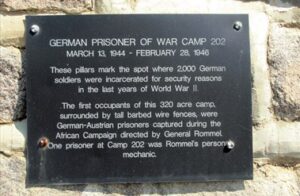
I like to think that POW camps in and run by the United States were and are more civilized than those camps owned and run by other countries, but I don’t suppose all of them were run as compassionately as the Greeley POW Camp. We hear nightmare stories of Guantanamo Bay, and I’m sure there are others that weren’t so great. Still, I suppose things depend on the prisoners to a great degree. It is harder to show kindness to a prisoner who orchestrates a terrorist attack against our nation, killing thousands of innocent people, that it is to be compassionate to a soldier who is simply following orders, but is otherwise a kind and gentle person.

